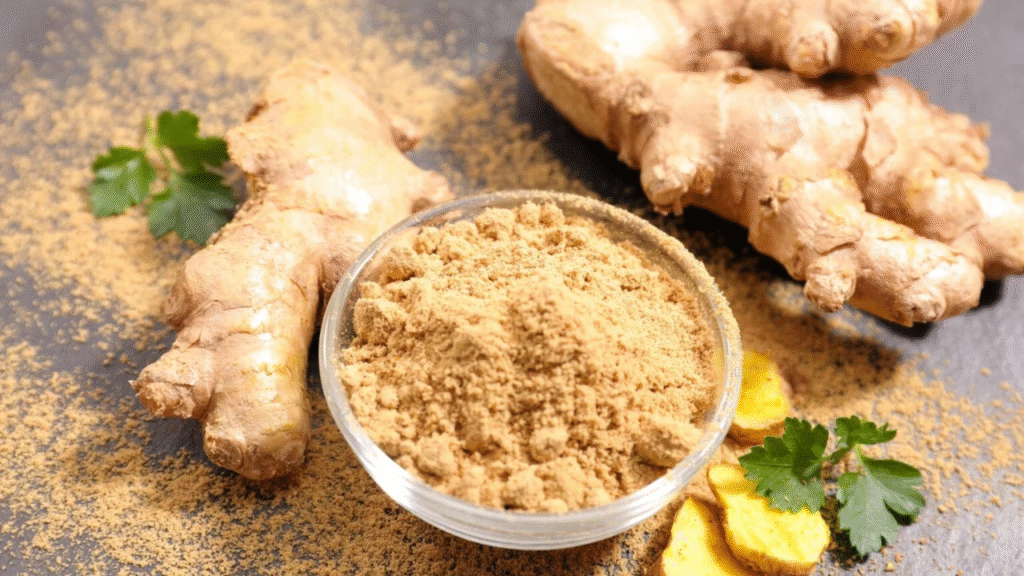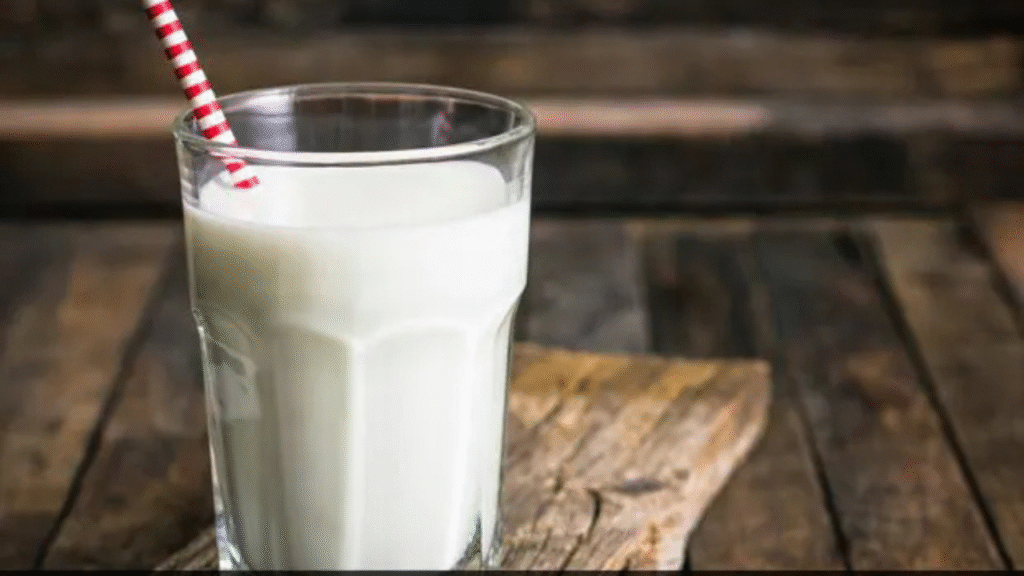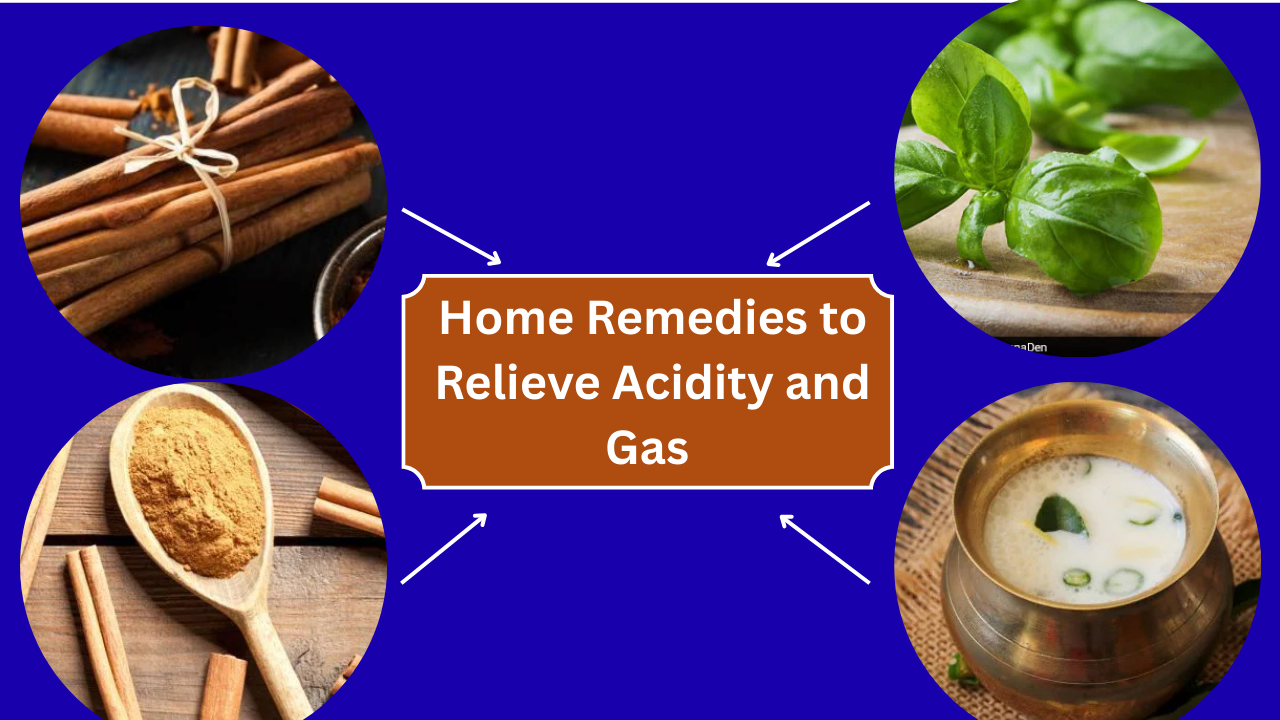Even nowadays, acidity and gas remain the most common stomach disorders. Unwholesome diets, stress buildup, and sedentary lifestyles contribute to these symptoms, characterized by discomfort, pain, and malaise. “Acidity” refers to excess acid generated in the stomach that flows back up into the esophagus, giving rise to heartburn, sour belching, and indigestion. Whereas “gas” results from improper digestion of food, which generates bloating, cramps, and flatus.
Over-the-counter acid reflux medications are a good remedy for quick relief, but could prove dangerous with time. This is where natural home remedies spring into action: perfectly simple ingredients readily found around your kitchen can very effectively control acidity and gas without any side effects.
Here, we discuss some of the most common home remedies for gas and acidity relief, along with some lifestyle changes to help combat these problems in the first place.
Acidity Home Remedies:
1. Basil Leaves
The soothing and carminative properties of basil leaves can give you instant relief from acidity.

At the first sign of gas, eat a few basil leaves or boil 3-4 basil leaves in a cup of water and let it simmer for a few minutes. Sip on it frequently. This is one of the best home remedies for acidity.
2. Fennel
You can also “chew sauf after meals, to prevent stomach acidity”, advises Nutritionist Anshul Jaibharat. “For its multitude of gastrointestinal benefits, fennel tea is sure to help the digestive tract be healthy and happy.

The tea is considered very useful to help indigestion and bloating because of the oils found in these seeds”, according to Shilpa Arora, ND, a renowned Health Practitioner, Nutritionist, and certified Macrobiotic Health Coach.
3. Cinnamon
A valuable and humble spice is inherently very acid-neutralizing and will help you ease the tummy through improved digestion and absorption.

To ease gastrointestinal tract infection, take a sip of cinnamon tea. This is a powerhouse of nutrients and health-benefiting properties.
4. Buttermilk
You know that buttermilk is classified as a sattvic food in Ayurveda? So, the next time you get acidity after eating a heavy or spicy meal, skip the antacid and drink a glass of chaas instead.

Lactic acid is the component in buttermilk that normalizes acidity in the stomach. Best results can be obtained from dashing some black pepper or adding 1 teaspoon of ground coriander leaves to it.
5. Jaggery
Ever wondered why our elders finish a meal with gur? “Due to its high magnesium content, jaggery helps boost intestinal strength,” Dr. Manoj K. Ahuja, Fortis Hospital, New Delhi, explains. It helps to digest and alkalize the digestive system, thus reducing stomach acidity.

Suck on a small piece of gur after a meal, and reap the benefits. It was also said that due to the cooling ability of gur, it maintains the body’s normal temperature, so it is suggested that during the summer months, you should take Gur Sharbat (jaggery soaked in ice-cold water) with you.
6. Cloves
Cloves have served their purpose in other nations; traditional Chinese medicine and Ayurveda have predominantly compiled them for the remedial treatment of digestive disorders. By nature, cloves are carminative and do not let any gas formations take place in the gut.

For example, take these: kidney beans or black gram: those beans usually cause flatulence. You can even consume crushed cloves and cardamom (mixed in equal amounts) to remedy acidity and remove bad breath (which is often associated with this problem).
7. Cumin Seeds
Cumin seeds can serve as an acid neutralizer, help in digestion, and alleviate stomach pain.

Lightly crush some cumin seeds, roast, and dissolve them in water or soak them in a cup of boiled water, one teaspoonful of cumin seeds, and drink after each meal.
8. Ginger
Ginger has its own hobbled outside but hidden inside are health benefits. “Ginger has perfect and amazing throat and stomach digestive properties, while being anti-inflammatory,” says Dr. Ahuja in Fortis Hospital.

To inactivate stomach acids, slice a piece of fresh ginger into your mouth, or take some ginger juice- one or two spoonfuls daily, or boil fresh ginger in a cup of boiling water and drink it.
9. Cold Milk
Those who do not suffer from lactose intolerance can consume milk, as it also helps in stabilizing the gastric acids in the stomach.

With abundant calcium in it, milk helps to clear the stomach of excess acids that build up. “All you need to do is drink a glass of cold milk the next time you suffer from acidity,” says Nutritionist Anshul Jaibharat.
10. Apple Cider Vinegar
Most often, acid refluxes occur due to very low stomach acid. That is why apple vinegar comes in handy at this time.

Simply mix 1 to 2 teaspoons of “raw” and unfiltered apple cider vinegar with a glass of water, then drink up one or two times a day. You can also down a tablespoonful of apple cider vinegar, followed by a glass of water. 11. Coconut Water
11. Banana
Banana has much to offer in terms of healthy properties. The natural antacids in bananas can act as buffers from acid reflux.

Bananas are the simplest home remedy for bidding farewell to acidity. An average-sized banana can be eaten every day to avert discomfort.
12. Amla
Amla extracts are for best remedy for indigestion and heartburn. It is an excellent anti-inflammatory agent, reducing swelling, tenderness, and pain in the stomach.

Amla reduces Pitta (heat) in the body, thus relieving the burning sensation.
13. Cinnamon
Helps to fasten the breakdown process of food by stimulating the digestive enzymes.

In addition, the acid flowing back into the food pipe reduces the risk of developing ulcers.
Lifestyle & Dietary Tips for Preventing Acidity and Gas
Along with these treatments, it helps to make a few changes in your behavior to keep you away from recurrent acidity and gas:
- Eat small, frequent meals – In order not to put pressure on your system, do not overeat.
- Chew food properly – Good chewing aids digestion and prevents gas formation.
- Stay hydrated – Consuming good amounts of water over time helps in purging toxins.
- Avoid spicy and oily foods – They trigger acid reflux and bloating.
- Restrict intake of caffeine and carbonated drinks – A condition wherein the acid increases in the stomach.
- Avoid lying down immediately after a meal – Sleep should wait at least 2-3 hours after a meal.
- Maintain a healthy weight – A heavier amount of belly fat puts more pressure on the stomach, exacerbating acid reflux problems.
- Stress management – stress is an inconspicuous cause of acid problems. Speak about yoga, meditation, or deep breathing.
- Exercise regularly – Light activities after a meal, like walking, help digestion.
- Sleep with the head elevated – This prevents acid from moving back into the food pipe at night.
Conclusion:
Runchiness and wind are common problems, but they can be controlled. You can actually get long-lasting relief without resorting to heavy medications through blending natural home remedies and healthy lifestyle habits. Just a little lemon, ginger, mint, fennel seeds, and cold milk can cast a magic on your stomach.
You can eat mindfully and then determine the culprits before you add digestion-friendly foods to your daily diet. With continuous use, this remedy not only ensures relief within minutes but also carves out a finer possible digestive feature later.
FAQs:
What are the best quick home remedies for acidity?
Cold milk, banana, lemon water, and fennel seeds provide quick natural relief from acidity and heartburn symptoms at home.
How can I naturally reduce gas instantly?
Chewing fennel seeds, drinking ginger tea, or sipping warm water with cumin can quickly ease gas and bloating discomfort.
Can stress cause acidity and gas problems?
Yes, stress affects digestion and increases stomach acid, often leading to acidity, bloating, gas, and indigestion in many people.
Which foods should I avoid to prevent acidity and gas?
Avoid spicy, oily foods, excessive caffeine, carbonated drinks, and heavy late-night meals, as they trigger acidity and gas.
SamhithaHealth & Wellness Content Writer
a Health & Wellness Content Writer with over 6 years of experience creating research-based health articles. She specializes in nutrition, weight management, diabetes care, skin health, and healthy lifestyle practices. Here content is carefully written using trusted medical and scientific sources to ensure accuracy and clarity for readers.

